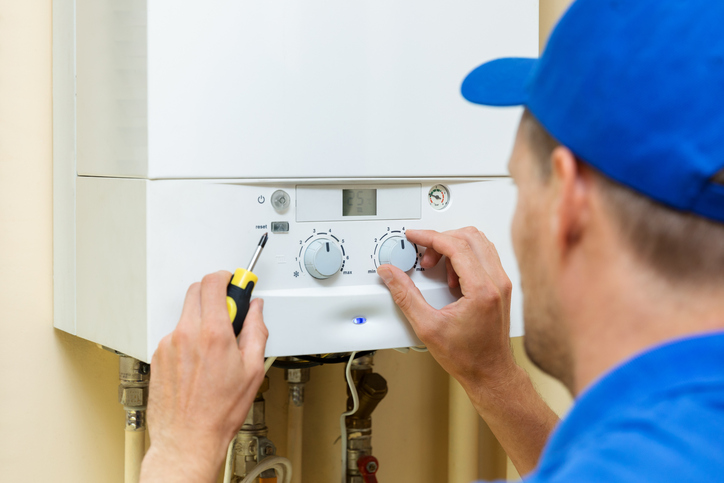Things New Yorkers should look for when buying a boiler for home

Before buying a new residential boiler, you want to do some serious thinking and research to make sure you get the right system for you and your budget.
If you have questions about boilers, call Lighthouse HVAC at 646-442-1556. Our staff repairs and installs boilers and has the experience and training to provide the information you want.
Among the questions to consider: What fuel do you want to use and what system works best for your budget.
Fuel: Natural gas and oil are the fuels most commonly used in New York City.
If space is an issue in your home, you may want to choose gas, which comes from a utility pipe, rather than oil, which requires a tank.
Electric boilers are a third option. They require little space, cost less to install and are more energy-efficient than natural gas, and you don’t have to worry about gas leaks if you choose electric. However, they can cost more (electricity vs. natural gas), they don’t offer as much heat as gas, and they stop working when the electrical system goes out, as has been known to happen in New York winters.
Size: You want to select a boiler that matches the square footage of your home. If its capacity is too small the boiler won’t serve you well, and if it’s too big it will generate unnecessarily big utility bills.
Boilers come in a range of sizes. If no boiler is an exact match to your square footage, pick one that is slightly larger rather than slightly smaller.
Efficiency: Every new boiler is rated for efficiency. The higher the efficiency the less fuel it burns to heat your home. The lower efficiency model may cost less to buy but if you plan to stay in the home long-term you will be wise to pay extra upfront for the high-efficiency model, which will bring lower bills.
Electric boilers can deliver 99 percent efficiency. Other boilers are ranked for Annual Fuel Utilization Efficiency (AFUE) from 80 percent to 96 percent. The AFUE rating is an estimate of how much fuel a boiler turns into usable heat.
High-efficiency boilers – rated about 90 percent – usually balance longevity and efficiency by using aluminum or stainless steel heat exchangers.
Another consideration: The lower efficiency systems cost less, but don’t qualify for rebates that may help you buy a higher efficiency system.
Venting: The three most common styles are chimney venting, direct venting and power venting. Your choices depend on your home’s construction, your existing boiler, and your desired efficiency.
A chimney vented boiler expels spent combustion gas through a chimney. Each boiler has its own requirements for the chimney’s height, size and construction.
Chimney venting works because hot air is less dense than cold air and rises up the chimney and outdoors. But you must make sure the chimney has enough fresh air and no obstructions that could cause inefficiency or, worse yet, carbon monoxide or a fire.
If your home lacks a functioning chimney, consider a power-vented boiler. This system, also known as direct exhaust, has a built-in blower that draws fresh combustion air into the boiler and pushes outside any spent gas.
Option 3: A newer, better-sealed home can use a direct vent boiler. The system, often referred to as sealed combustion, can be installed in a closet. Since it doesn’t rely on indoor air, a direct vent boiler’s exhaust system can be vented through a ceiling or wall on the side of the home.
As you can see, buying a boiler can be very complicated. Call us at 646-442-1556 and we will be glad to give you the information you need to make the best decision for your budget and your needs. The staff at Lighthouse HVAC, based in Brooklyn, has extensive experience installing and repairing boilers, central heat and air systems and cleaning shafts and chimneys.